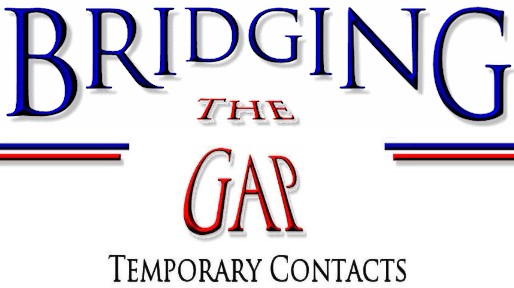Treatment
Committee


Treatment Committee
We are always looking for AA members to do service chairing or speaking at our facilities. Please consider volunteering once a month.
Does your group have a Treatment Rep? Let them know about our committee! We are also asking for gently used or new AA literature for our facilities; please bring to the SIA Office or the next SIA Business Meeting.
Facilities are taking the necessary steps to ensure visitors and patients are protected and can meet safelyto see upcoming open Treatment commitments, click here
to sign up for a Treatment commitment, click here
for more info, email treatment@suffolkny-aa.orgGroup Treatment Representative
The group Treatment Representative is a “messenger” for his or her A.A. group, bringing information to and from the local Treatment Committee meeting. The representative informs the group of openings for speakers and chairpersons of meetings in treatment settings and also reports on the needs and activities of the committee.
What is a Literature Hoarder?
A Literature Hoarder gathers lightly used books and grapevine material from members and meetings and hoards this treasure at our Committee meeting to be redistributed to Institutional Meeting chairs for AA prospects in Institutions.
Bridging The Gap
The Bridging the Gap Program, or BTG, connects the new member being discharged from a facility to A.A. in their community. You are being asked to be that connection, what is called a Temporary Contact.
When a new, soon-to-be discharged member contacts us, we match that person to a Temporary Contact in the community where they will be living. If you have volunteered for this type of service, we will call you, get the okay and then send you their contact information.
Your job is simple. You contact the new A.A. member and arrange to take them to an A.A. meeting, preferably within 24-48 hours of their discharge. Your commitment is to take them to a variety of meetings and introduce them to other A.A. members.
During this time, you help them become acquainted, get phone numbers and perhaps locate a sponsor and a home group. You introduce them to others in A.A. so they have a broad, healthy base, then you are available to serve as a Temporary Contact for another person.
Please note: It is not intended that you become their sponsor, even temporarily. It is best if the word “sponsor” is not used to describe this type of service. The term Temporary Contact is preferred.
Please note: Temporary Contact will need to adhere to the rules facilities have regarding contact with residents, both while they are in the facility and after they are discharged. The BTG coordinator can provide the necessary information for each facility.
reprinted from pamphlet F-184 ‘A.A. Bridging The Gap / Temporary Contact’ with permission from Alcoholics Anonymous World Services Inc.
to sign up as a Temporary Contact, click here
for more info on Bridging The Gap, email
bridgingthegap@suffolkny-aa.org
Do you have a Service Sponsor?
“…A.A. service is anything whatever that helps us to reach a fellow sufferer — ranging all the way from the Twelfth Step itself to a ten-cent phone call and a cup of coffee, and to A.A.’s General Service Office for national and international action. The sum total of all these services is our Third Legacy of Service.” — The A.A. Service Manual/Twelve Concepts for World Service.
Sponsorship in A.A. is basically the same, whether helping another individual’s recovery or service to a group. It can be defined as one alcoholic who has made some progress in recovery and/or performance in service, sharing this experience with another alcoholic who is just starting the journey. Both types of service spring from the spiritual aspects of the program.
Individuals may feel that they have more to offer in one area than in another. It is the service sponsor’s responsibility to present the various aspects of service: setting up a meeting; working on committees; participating in conferences, etc. In this matter it is important for the service sponsor to help individuals understand the distinction between serving the needs of the Fellowship and meeting the personal needs of another group member.
A service sponsor is usually someone who is knowledgeable in A.A. history and has a strong background in the service structure. The A.A. member is introduced to a new language: G.S.R., D.C.M., area assembly, minority opinion. They will become familiar with the Traditions, Concepts and Warranties, as well as The A.A. Service Manual/Twelve Concepts for World Service, Alcoholics Anonymous Comes of Age and other A.A. literature.
The service sponsor begins by encouraging the member to become active in their home group — coffee, literature, cleanup, attending 26 business or intergroup meetings, etc. The service sponsor should keep in mind that all members will not have the desire or qualifications to move beyond certain levels and, thus, the service sponsor might help find tasks appropriate to individuals’ skills and interests. Whatever level of service one performs, all are toward the same end — sharing the overall responsibilities of Alcoholics Anonymous.
Eventually, the service sponsor encourages the individual member interested in this form of service to attend district meetings and to read about the history and structure of Alcoholics Anonymous. At this point, the individual beginning this work should begin to understand the responsibilities of service work, as well as feel the satisfaction of yet another form of Twelfth Step work. Such individuals should be encouraged to take an active part in district activities and consider being elected to alternate positions in the district so as to learn about the responsibilities of various jobs in the service structure.
During this process it is important for the individual to continue to learn about the Three Legacies — Recovery, Unity and Service, and to understand that the principle of rotation not only allows them to move on in service, but also gives newer members the privilege of serving. Rotation also allows them to understand that no one should hold on to a position of trust long enough to feel a proprietary interest and thereby discourage newcomers from service.
Co-founder Dr. Bob said, “I spend a great deal of time passing on what I learned to others who want and need it badly. I do it for four reasons:
- Sense of duty.
- It is a pleasure.
- Because in doing so I am paying my debt to the man who took time to pass it on to me.
- Because every time I do it I take out a little more insurance for myself against a possible slip.”
The basis of all sponsorship is to lead by example. Service sponsors can impart to their sponsees the pleasure of involvement in the work of Alcoholics Anonymous. This is best done by 27 stressing the spiritual nature of service work and by pointing out the usefulness of simple footwork and faith.
Now, through knowledge and experience, the newer member is aware that service is our most important product after sobriety. With this knowledge, the individual is able to share their vision with others and ensure the future of Alcoholics Anonymous.
SIA Committee Meeting Schedule
| COMMITTEE | WHEN | WHERE |
|---|---|---|
| Archives | 2nd Tuesday 7pm | SIA Virtual Space |
| Big Meeting | TBA | True North Church AND SIA Virtual Space |
| Bridging The Gap | 2nd Friday 6pm | SIA Office AND SIA Virtual Space |
| By-Laws | 2nd Tuesday 6:30pm | SIA Office |
| Corrections | 1st Tuesday 7pm | SIA Virtual Space |
| Public Information | TBA | TBA |
| Schools | 3rd Monday 5:30pm | SIA Virtual Space |
| Share-A-Thon | last Tuesday 7pm | True North Church AND SIA Virtual Space |
| Special Events | TBA | TBA |
| Third Legacy | TBA | TBA |
| Treatment Facilities | last Tuesday 6:30pm | True North Church AND SIA Virtual Space |
| Web Committee | 2nd Thursday 6pm | SIA Virtual Space |